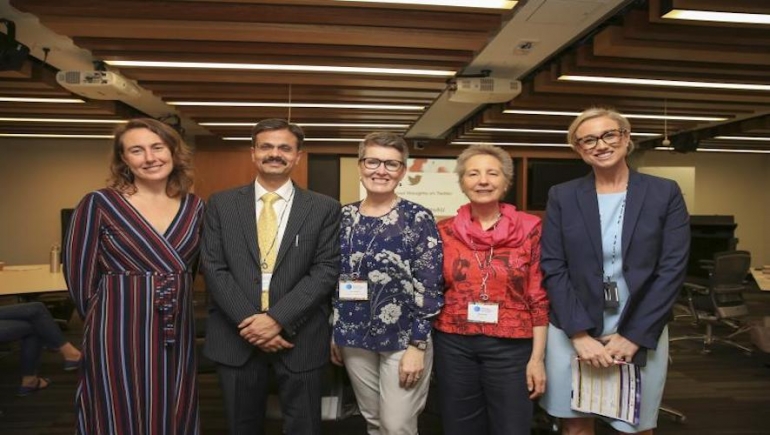A range of experts on gender and business have come together to provide practical recommendations on what it means to “protect, respect and remedy” the rights of women in the workplace.
The two-day consultation in Sydney helped to inform a report by the UN Working Group on Business and Human Rights, by exploring both the good practices and significant challenges around corporate human rights due diligence relating to the rights of women.
Professor Surya Deva, Vice Chair of the UN Working Group, said it was pushing both states and businesses to take the UN Guiding Principles “from paper to practice”.
“A robust national action plan to implement the UNGPs can provide a blueprint to achieve this goal,” Prof Deva said.
"Both states and companies should give adequate attention to women’s experiences of being impacted differently and disproportionately by business activities. A gender-sensitive approach is appropriate for all companies operating in all circumstances.
“All states, including Australia, must do more to create incentives and disincentives for companies to respect all human rights. Urgent actions are of course needed to deal with modern slavery. But the sole regulatory focus on modern slavery is misconceived.”
The Australian consultation was supported by the Australian Human Rights Commission, the Australian Human Rights Institute at UNSW Sydney and RMIT University.
Professor Louise Chappell, Director of the Australian Human Rights Institute at UNSW Sydney, said there had been inadequate attention to the impacts of business on the human rights of women.
“It’s great to see that momentum is finally building behind the need to seriously integrate gender equality measures into the UN Guiding Principles,” Professor Chappell said.
“This consultation brings together a diverse range of contributions on women’s employment issues including sexual harassment, sex-segregated occupations and financial discrimination, and it also incorporates Indigenous women’s concerns, to show the breadth of experiences of women in Australia.”
Australian Human Rights Commission President Rosalind Croucher said when we talk about the gender lens and business, the biggest elephant in the room is caring.
“The numbers are very clear, the burden of caring, whether it’s for children, people with disability or our elders, that burden of caring falls disproportionately on women,” she said.
“Unless we tackle the elephant in the room in all of our conversations about business, then we are dodging what is the reality and the lived experience for women.”
Dr Shelley Marshall of RMIT University said an important benefit of the consultation was to discover ways to break down the barriers that women encounter when seeking redress.
“Power imbalances and lack of information often restrict access to remedies available to women whose rights have been breached by companies,” Dr Marshall said.
“These discussions will help us share the good practices from around the world that have been developed to deal with this.”
The report of the Working Group will be presented to the UN Human Rights Council in June 2019.
Stakeholders such as states, international and regional organisations, national human rights institutions, policy makers, civil society organisations, human rights defenders, trade unions, research centres, business enterprises, industry associations, lawyers and academics have been invited to provide input.
The working group will continue to take submissions after the consultation by email: wg-business@ohchr.org
